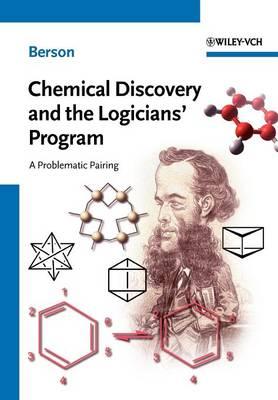Overview
What is it that turns a new observation into a true scientific discovery? And who may claim the credit? Theoreticians of science, the foremost thinkers of their times among them, have tried to answer these fundamental questions about the nature of scientific progress and discovery. With clear insight and the chemical as well as philosophical wisdom gained from over fifty years as a practising chemist, Jerome Berson puts their theories to the test. The development of chemistry into a ""modern"" science during the last two centuries provides him with ample cases to illustrate the way scientific progress really happens. Kekulé's struggle to arrive at a structure for benzene, the paradigm change that was necessary to accept the reality of molecular rearrangements, and other episodes are retold here from the philosopher's as well as from the practitioner's perspective, shedding light on the way scientists think and act. Berson's account of the rather unphilosophical way in which scientific discoveries are made includes the realization that even a false hypothesis, such as Woodward's ideas about the biosynthesis of strychnine, may help rather than hinder scientific progress. Scientists of all ages, as well as many non-scientists, will find this a highly readable and unusual book.
Full Product Details
Author: Jerome A. Berson (Yale University, New Haven, Connecticut, USA)
Publisher: Wiley-VCH Verlag GmbH
Imprint: Blackwell Verlag GmbH
Dimensions:
Width: 17.20cm
, Height: 1.10cm
, Length: 24.50cm
Weight: 0.397kg
ISBN: 9783527307975
ISBN 10: 3527307974
Pages: 207
Publication Date: 01 July 2003
Audience:
Professional and scholarly
,
Professional & Vocational
Format: Paperback
Publisher's Status: Out of Print
Availability: Awaiting stock

Reviews
...a fascinating book that should be of interest to both chemists and philosophers...it is philosophically stimulating and...makes many valuable points... (Chemical & Engineering News, March 22, 2004) ...recommended... (Choice, Vol. 41, No. 8, April 2004)
...Berson's newest book has considerable strengths. It is the type of work that should be read by all our colleagues, inside and autside of chemistry. Stephan J. Weininger Angewandte Chemie, 2003 'Chemical Discovery' is a fascinating book that should be of interest to both chemists and philosophers. Through insightful analysis of historical examples, Berson's important book will undoubtedly serve as a useful introduction to some of the core philosophical issues about theory testing to students and practitioners of chemistry... The book could profitably play a key role in a seminar about the methodology or philosophy of chemistry, a use of which I hope to put the book myself. It is philosophically stimulating and ... makes many valuable points. I hope that the book will stimulate similar future projects, perhaps collaborations between chemists and philosophers of science. Michael Weisberg, University of Pennsylvania Chemical Engineering News, March22, 2004 Chemical Discovery and the Logician's Program is a welcome addition to the literature of philosophy and history of science from the perspective of a thoughtful practitioner of chemistry. Carmen J. Giunta, Le Moyne College, Syracuse, NY Bulletin for the History of Chemistry 1/2004 ...offers us valuable insights into the emergence of novel chemical paradigms. Chemistry and Industry, Vol.2, No.2, February 2005 ...recommended... Choice, Vol. 41, No. 8, April 2004 Pierre Laszlo, HYLE - International Journal for Philosophy of Chemistry, Vol. 10 2004, No. 1
Author Information
Jerome A. Berson received a B.S. in chemistry from the City College of New York in 1944. After a brief period in the industry with Hoffmann-La Roche in New Jersey, he served in the Army of the United Stated (1944-1946, China-Burma-India Theater). In 1946, he entered graduate study at Columbia University where he took M.A. and Ph.D. degrees with W. von E. Doering. He was a post-doctoral fellow at Harvard University (with R. B. Woodward) in 1949-1950. Subsequently, he taught chemistry at the University of Southern California (1950-1963), the University of Wisconsin (1963-1969), and Yale University (since 1969). He is presently Sterling Professor Emeritus of Chemistry at Yale. His research group has concentrated its efforts on the elucidation of reaction mechanisms and the synthesis of molecules of theoretical interest. In the latter category, a principal activity has been the study of non-Kekulé compounds. In recent years, he has written on the history of science, producing a number of articles and two books, both published by Wiley-VCH: Chemical Creativity (1999) and the present book, Chemical Discovery and the Logicians' Program.



